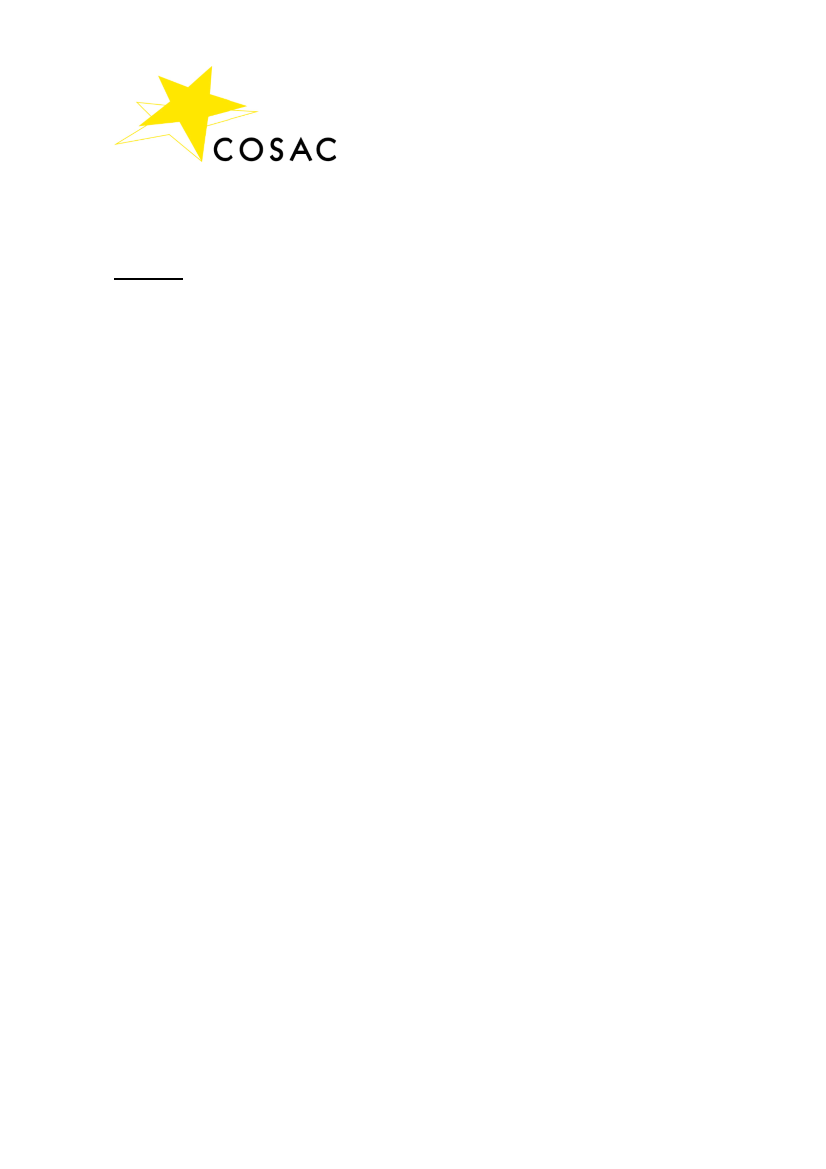
MINUTES OF THE MEETING OF THE CHAIRPERSONS OF COSAC
P
RAGUE
, C
ZECH
R
EPUBLIC
, 10 - 11 J
ULY
2022
AGENDA
PROCEEDINGS
1. Opening of the meeting
Welcome speech by Mr Miloš Vystrčil, President of the Czech Senát
Opening remarks by Mr David Smoljak, Chairman of the Committee on EU Affairs - Senate
1
2
2
2
Opening remarks by Mr Ondřej Benešík, Chairman of the Committee on European Affairs of the
Chamber of Deputies
2
2. Procedural and other general matters
Adoption of the Agenda of the Meeting
Presentation of the results of the COSAC Presidential Troika Meeting
Provisional agenda for the LXVIII COSAC
Outline of the 38th COSAC Bi-Annual Report
Letters received by the Presidency
3
3
4
4
5
5
Presentation of the outcomes of the COSAC Working Groups by representatives of the European
Affairs Committees of the French Parliament
6
3. First session - Presentation of the priorities of the Czech Presidency of the EU Council
9
Keynote speaker: Mr Jan Lipavsk�½, Minister for Foreign Affairs of the Government of the Czech
Republic
9
4. Second Session - Media and Democracy: current challenges
13
Video message: Ms Věra Jourová, Vice-President of the European Commission for Values and
Transparency
13
Keynote Speaker: Mr Othmar Karas, First Vice-President of the European Parliament
13
Speaker: Mr Michal Klíma, Commissioner for Media and Counter-Disinformation of the Czech
Government
13
6. Closing remarks of the Chairpersons
18
1